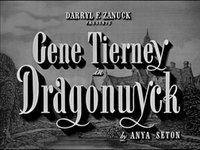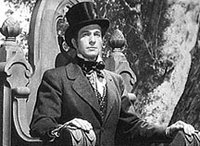 When I was a teenager one energy node of my literary obsessions was focused on historical novels and history, in particular the books of Anya Seton. They turn out, in retrospect, to have been fairly nutritious reading, given that I was scarfing them up primarily for the sex scenes. They were always incredibly well-researched, told good stories, were packed with history and atmosphere... I've not read one recently enough to be immediately remember what their weaknesses were, other than perhaps those common in the romance genre, but her books always made me interested in the eras and subjects at hand. And sexy historical nookie!
When I was a teenager one energy node of my literary obsessions was focused on historical novels and history, in particular the books of Anya Seton. They turn out, in retrospect, to have been fairly nutritious reading, given that I was scarfing them up primarily for the sex scenes. They were always incredibly well-researched, told good stories, were packed with history and atmosphere... I've not read one recently enough to be immediately remember what their weaknesses were, other than perhaps those common in the romance genre, but her books always made me interested in the eras and subjects at hand. And sexy historical nookie! The book that I loved in particular was Dragonwyck, in an inherited tattered old edition, which I gobbled like it was crack the first time I read it. There is no way I'd know anything about feudal tenantry in New York State, patroons, or the anti-rent war without it, nor really that that kind of feudalism existed (outside of slavery) in America without this book. I've been thinking about it recently because it turns out there was a 1946 movie adaptation with Vincent Price and Gene Tierney that shows up on late night cable sometimes, as it did the other night. Price is good, really quite good as the dommy patroon Nicholas Van Ryn and Tierney's pretty well-cast too as the farmer's daughter who comes to live at Dragonwyck and gets caught up in the gothicktude. It's missing some of the sharp ups and downs of the book, since both Price and Tierney can be so dreamy-(weird/dreamy-evil/whatever), but it's good, and we get to wallow Price's undeniable sex appeal and menace. After all, what's a big B&W blowout historical film good for if not some serious shadows thrown on the walls for scary effect?
The book that I loved in particular was Dragonwyck, in an inherited tattered old edition, which I gobbled like it was crack the first time I read it. There is no way I'd know anything about feudal tenantry in New York State, patroons, or the anti-rent war without it, nor really that that kind of feudalism existed (outside of slavery) in America without this book. I've been thinking about it recently because it turns out there was a 1946 movie adaptation with Vincent Price and Gene Tierney that shows up on late night cable sometimes, as it did the other night. Price is good, really quite good as the dommy patroon Nicholas Van Ryn and Tierney's pretty well-cast too as the farmer's daughter who comes to live at Dragonwyck and gets caught up in the gothicktude. It's missing some of the sharp ups and downs of the book, since both Price and Tierney can be so dreamy-(weird/dreamy-evil/whatever), but it's good, and we get to wallow Price's undeniable sex appeal and menace. After all, what's a big B&W blowout historical film good for if not some serious shadows thrown on the walls for scary effect? The story, though, especially the book, really is the most RIPPING YARN. It's such a good story that it has that kind of universal / abstract / parable-like / allegorical feel to it. You want her to sin, you want the unsympathetic compensatory-eating wife of no import (BUT IS SHE?) to be out of the picture so that Miranda, with all her imperatives of youth and beauty can have the patroon. Why shouldn't they be happy at other's expense? Then Van Ryn changes, our perception of him changes, the story blows up (yeah, gothickly) to be about why anybody should own anything (such as land) at other's expense and zow ping! War. The book gives a really good picture of the fierceness of certain kinds of Christian living at that time (1840s) through Miranda's father's reactions to all the luxury, which seem exasperating but prescient, yet not all easy-foreshadowing English 101 either. Even the man Miranda ends up with the end feels genuinely unlikely at first, in some ways.
The story, though, especially the book, really is the most RIPPING YARN. It's such a good story that it has that kind of universal / abstract / parable-like / allegorical feel to it. You want her to sin, you want the unsympathetic compensatory-eating wife of no import (BUT IS SHE?) to be out of the picture so that Miranda, with all her imperatives of youth and beauty can have the patroon. Why shouldn't they be happy at other's expense? Then Van Ryn changes, our perception of him changes, the story blows up (yeah, gothickly) to be about why anybody should own anything (such as land) at other's expense and zow ping! War. The book gives a really good picture of the fierceness of certain kinds of Christian living at that time (1840s) through Miranda's father's reactions to all the luxury, which seem exasperating but prescient, yet not all easy-foreshadowing English 101 either. Even the man Miranda ends up with the end feels genuinely unlikely at first, in some ways.Maybe the book doesn't hold up--I dunno (must rerererereread)--but I remember it as a really a good story, and I really admire good stories like that. And in that your-teacher-told-you kinda obvious way more of the history has stuck than I realized. (Turns out Anya Seton's (English) father helped found the Boy Scouts. Interestin.)

No comments:
Post a Comment